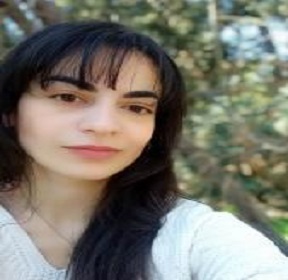
Antrea-Antriana Psaraki
National and Kapodistrian University of Athens GreeceTitle: Development of a tailored cell-free therapeutic approach based on MSC-exosomes for acute hepatic failure
Abstract:
Statement of the Problem: Acute hepatic failure (AHF) is a rapid deterioration of liver function with a high mortality rate. To date, liver transplantation is the gold standard therapy for AHF with limitations related to donor organ shortage and life-long immunosuppressive therapy. Our previous studies have shown that factors released by fetal mesenchymal stromal cells (MSCs) and their hepatocyte progenitor-like (HPL) cells, could induce liver repair and down-regulate the systemic inflammation in CCL4-mice, by secretion of IL-10 and Annexin A1. We proved an alternative bio-therapeutic, exosomes (EXO), for improving AHF phenotype in vivo. We presented a novel concept in AHF therapy based on the secreted EXO by umbilical cord MSCs (UC-MSCs) and their HPL cells in an AHF mouse model. Methodology & Theoretical Orientation: The data presented here, demonstrated the therapeutic effects of isolated EXO in ex vivo and in vivo experimental models, mimicking AHF disease. More specifically, EXO derived from UC-MSCs or HPL-cells improved liver phenotype in CCL4-induced mice and promoted oval cell proliferation. We further profiled the EXO protein cargo, instrumental for precise strategies for AHF. LC-MS/MS proteomic analyses showed that MEFG-8 protein was enriched in EXO and facilitated AHF rescue by suppressing PI3K signaling. In addition, the administration of recombinant MFGE-8 protein managed to reduce liver damage in CCL4 -mice. Clinically, MEFG-8 expression was decreased in biopsies of liver tissue from patients with AHF. We further applied a tailored therapeutic approach for AHF involving the application of modified UC-MSC-EXO cargo. Conclusion & Significance: More specifically, we investigated the function of MFGE-8 in liver damage in CCL4-induced mice by modifying its levels in UC-MSCEXO cargo. Further, we performed LC-MS/MS analysis in the MFGE-8-treated mouse livers and identified several proteins, mediating efferocytosis (such as Pklr, Gstt1, Gstt3, Fggy, Mthfd1, Dcxr, Slco1b2, and Abcc6), as well as others related to autophagy (such as ATG5, ATG7, LC3B, and Beclin-1). Collectively, we provide proof-of-concept for a tailored, multidisciplinary and cell-free, alternative strategy for AHF (Figure 1) and important new mechanistic information on the reparative function of progenitor cells in the liver.
Biography:
Antrea-Antriana Psaraki has extensive expertise in the field of stem cells and extracellular vesicles and their applications in regenerative medicine, aiming for more precise and effective treatments for liver diseases. She conducted an experimental approach, revealing the proteomic cargo and the therapeutic mechanism of exosomes derived from fetal MSCs in a mouse model of AHF. This specific model has been designed after years of experience in research and training in cell culture procedures, especially in the application of MSC-mediators (exosomes and CM) in liver diseases (Psaraki et al., 2022; Nikokiraki et al., 2022). The methodology that was followed was based on established procedures (Zagoura et al. 2012), as well as on findings, on the anti-inflammatory and regenerative role of MSC-secretome in AHF (Zagoura et al. 2019) and inflammatory bowel disease (IBD)

